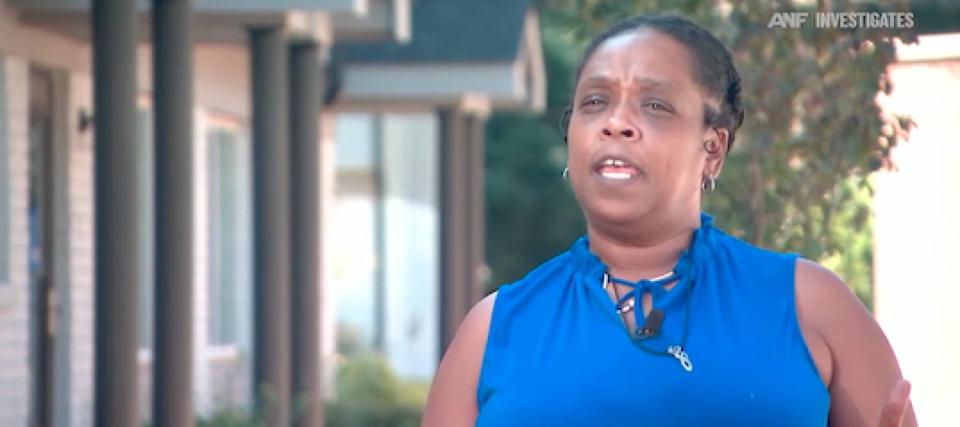Atlanta woman falls prey to a car insurance scam after missing this major red flag — and she’s not the first

Najwa Rucker is making it her mission to prevent others from making the same mistake she did. Her story started earlier this year, when she purchased a used Nissan Altima from Atlanta Best Used Cars. The salesman who sold her the car recommended an insurance company, All-Citi Insurance Group, that offered the full coverage she was looking for.
“He just started to say, ‘I’ve got a company that does insurance that will give you full coverage for $250 — if you’re interested,’” Rucker told Atlanta News First (ANF).
Don't miss
Car insurance premiums in America are through the roof — and only getting worse. But 5 minutes could have you paying as little as $29/month
Lock in juicy quarterly income through this $1B private real estate fund — even if you’re not a millionaire. Here’s how to get started with as little as $10
5 minutes could get you up to $2M in life insurance coverage — with no medical exam or blood test
It seemed like a convenient solution for Rucker, who needed auto coverage, so she provided her phone number to the salesperson. She quickly received a text that reiterated the offer: $250 for full coverage insurance, payable via Cash App or Apple Pay.
That’s when Rucker missed a major red flag — paying for insurance via a money transfer app.
How the insurance scam unfolded
Rucker sent the initial $250 payment, continued to pay the fee via Cash App and assumed she had coverage.
The real trouble began months later when she was in a car accident and tried to file a claim with her supposed insurance company. After requesting a $500 deductible for the claim, which Rucker paid, the company stopped responding. It was then she realized she'd been scammed out of nearly $2,000.
Investigators from Georgia’s Commissioner of Insurance and Fire Safety later confirmed that the company was not a valid insurer and had been part of an ongoing fraudulent scheme dating back to 2022. The thief behind this scam had allegedly tricked at least 19 people out of $17,600 total across the state by requesting victims to pay for “insurance” through Cash App and pocketing the cash.
Once ANF informed the Commissioner of Insurance about the scam, it issued Atlanta Best Used Cars a cease and desist order to stop the dealership from referring customers “to any agent or entity without first establishing that such agent or entity is licensed to transact the business of insurance in Georgia.”
Luckily for Rucker, the insurance company of the at-fault vehicle in the accident covered her auto repairs, and she was able to get her car fixed.
Read more: These 5 magic money moves will boost you up America's net worth ladder in 2024 — and you can complete each step within minutes.
How to shop for insurance safely
There are several steps you can take to protect yourself from falling victim to a scam like this.
First, always verify that the car insurance company you are considering is licensed to operate in your state. You can typically verify this information with your state's department of insurance.
In Georgia, you can use the License Lookup service offered by the Office of the Commissioner of Insurance and Safety Fire.
Also, be wary of agencies that ask you to pay by peer-to-peer payment apps like Cash App, Apple Pay or Venmo. These payment methods are intended to send funds to friends or family and lack the fraud protections of traditional payment methods like ACH transfers or credit cards.
Rucker has since reported the scam to multiple agencies, including the Consumer Protection Division, the Georgia Bureau of Investigation, the Federal Bureau of Investigation and the Better Business Bureau.
"Every late night that I was up, just trying to find out any type of information that I could find… it's worth it,” Rucker told an ANF reporter. “If it's going to stop someone from making the same mistake I made, it's definitely worth it."
What to read next
Cost-of-living in America is still out of control — use these 3 'real assets' to protect your wealth today, no matter what the US Fed does or says
'It's not taxed at all': Warren Buffett shares the 'best investment' you can make when battling rising costs — take advantage today
82% of Americans are missing out on a savings account that pays over 10 times the national average
This article provides information only and should not be construed as advice. It is provided without warranty of any kind.

 Yahoo Finance
Yahoo Finance 